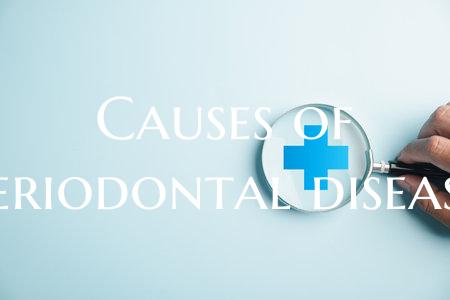
Causes of periodontal disease
Periodontal disease, also known as gum disease, is a common oral health problem that affects millions of people worldwide. This condition can range from mild gum inflammation to more severe cases that can lead to tooth loss if left untreated. Understanding the causes of periodontal disease is crucial in order to prevent and manage this condition effectively.
1. Poor Oral Hygiene: One of the primary causes of periodontal disease is a lack of proper oral hygiene. When plaque, a sticky film of bacteria, builds up on the teeth and gums, it can harden into tartar, which cannot be removed by brushing alone. This tartar irritates the gums and can lead to inflammation and infection.
2. Smoking and Tobacco Use: Smoking and the use of other tobacco products have been strongly linked to an increased risk of periodontal disease. Tobacco use can weaken the immune system, making it harder for the body to fight off infection in the gums.
3. Genetics: Some individuals may be genetically predisposed to developing periodontal disease. If you have a family history of gum disease, you may be at a higher risk of developing the condition yourself.
4. Poor Nutrition: A diet lacking in essential nutrients, such as vitamin C, can weaken the immune system and make it harder for the body to fight off infections, including those in the gums. Eating a healthy, balanced diet can help support overall gum health.
5. Hormonal Changes: Hormonal fluctuations, such as those that occur during puberty, pregnancy, and menopause, can affect the gums and increase the risk of periodontal disease. It is important for individuals experiencing hormonal changes to pay extra attention to their oral hygiene routine.
6. Certain Medications: Some medications, such as antihistamines, decongestants, and antidepressants, can reduce saliva flow, which plays a key role in protecting the gums and teeth. This decrease in saliva can increase the risk of gum disease.
7. Chronic Stress: Stress can weaken the immune system and increase inflammation in the body, including in the gums. Managing stress through relaxation techniques, exercise, and proper self-care can help reduce the risk of developing periodontal disease.
By understanding the causes of periodontal disease and taking steps to address any risk factors, individuals can work towards maintaining optimal gum health and preventing the progression of this common oral health condition. Regular dental check-ups, professional cleanings, and a consistent oral hygiene routine are key components of preventing and managing periodontal disease.